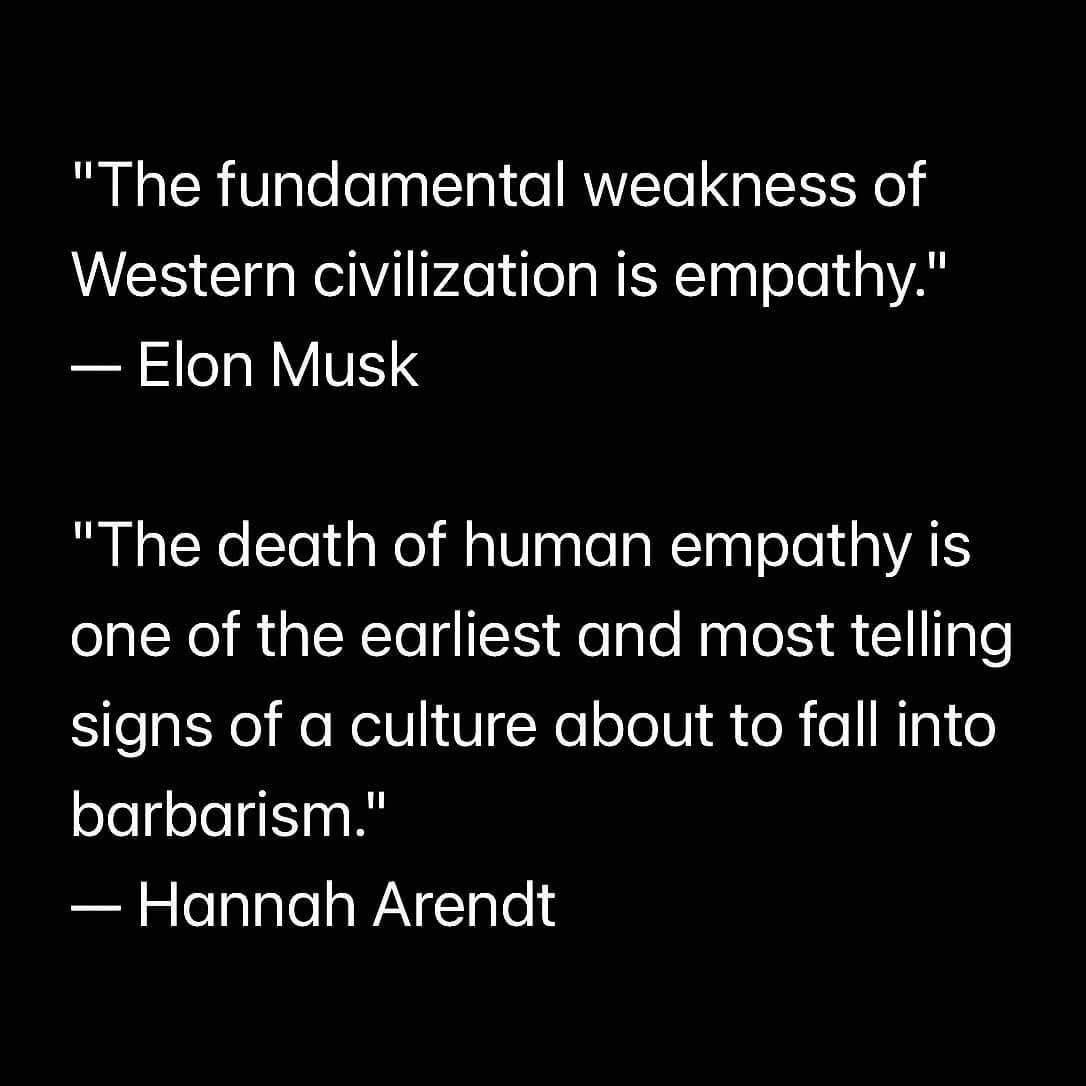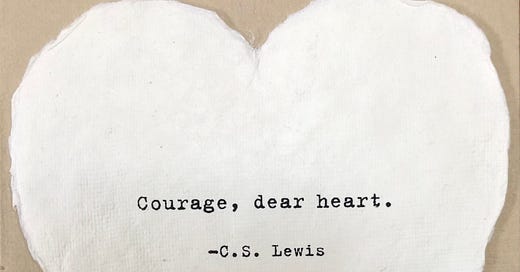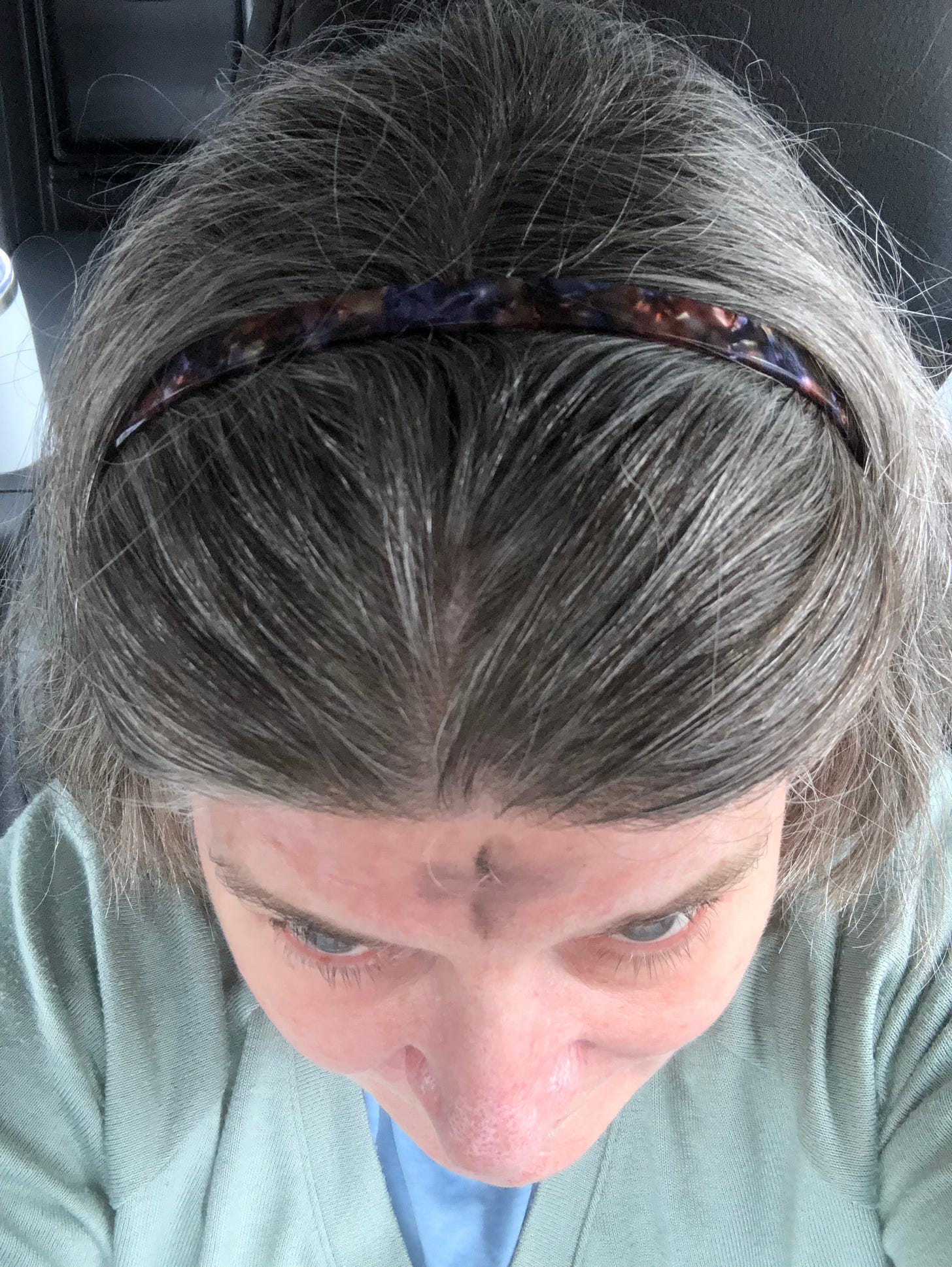Thirteen Reasons Why We Practice Empathy
Top banned book #5 “Thirteen Reasons Why”; helping teens; help for us; banned book news
Hello Friends,
I have been doom scrolling off and on all week and am very late in writing this. I thought about skipping it, but I had said last week that I wanted to discuss the #5 top banned book Thirteen Reasons Why. Maybe it’s something from my childhood, I don't know, but I feel better when I follow through. So, here I am.
As things fall apart, I see many people are working to either make us understand what’s happening or to provide help. So I’m going to include some links to those things further on in this post.
Helping kids
I had a dream last night that I was back working in the high school library. I was recalled because the good people there needed all hands on deck. A greater force (the government?) had altered all the online research databases so that finding facts through them had become extremely hard. We library folks were trying to teach the teens how to find reliable information, but had little to work with. We were trying to show them how to take notes and check historical facts through reference works and primary source books. The students didn’t understand the concept of organization—how to use a table of contents or an index, etc., how to find any information that wasn’t spit directly at them. It was hellishly slow work. I saw that the librarian’s lunch had only been partially eaten. That the library technician was smart and helpful and had joined the research lessons, while the textbook technician tried to take over everything else that was happening in the library. But when the class was over, we had only dealt with one student each because there was so much to cover, so little that they understood. There were 32 kids that we didn’t help.
I knew this was a dream representing my larger concerns with the country right now. But I was so rattled when I awoke. I basically wasted the day, checking the news and book reviews—which did nothing to make me feel better. I imagine you all are having the same sort of dreams in a different context.
Maybe the idea of helping kids to be informed is in the air. When I checked my email, I found this (following Matthew 21:15-16) in the daily quotes from Sojourners (left-leaning Christian nonprofit):
Voice of the day
Places of faith should not only be speaking out prophetically against discrimination and abuse of children; they should also be empowering children to speak out for themselves. - R.L. Stollar
And I read this in Ron Charles’s Book Club newsletter:
High schools need to teach journalism, districts need to fund student newspapers, and principals need to keep their controversy-averse paws off these practice presses.
But it’s never too early to start helping children discern the difference between truth and lies, information and propaganda. Here are a few books to check out:
“Facts vs. Opinions vs. Robots,” a picture book by Michael Rex, teaches children the difference between statements that are true, statements that are false, and statements that are opinions (ages 5-8).
“Killer Underwear Invasion!: How to Spot Fake News, Disinformation & Conspiracy Theories,” by Elise Gravel, is an irresistible graphic novel for kids (ages 7-11).
“Can You Believe It?,” written by Joyce Grant and illustrated by Kathleen Marcotte, helps children understand how readers should approach what they see online (ages 9-12).
“True or False?: The Science of Perception, Misinformation, and Disinformation,” by retired clinical psychologist Jacqueline Toner, presents engaging, real-world explanations of the way our minds interpret information and cling to suggestions (ages 10-14).
“True or False,” by former CIA analyst Cindy Otis, offers teens a “guide to spotting fake news.” Writing in The Washington Post, Christina Hillsberg said, “Though billed for young adults, this is a book that every adult should read.”
Thirteen Reasons Why by Jay Asher
If you’ve been with me for a while, you know I like to include my earlier writing about now banned books so I can show what I thought about the book long before this 2020’s wave of book banning started. I know that Thirteen Reasons was also made into a movie, but I haven’t seen it, and it and its topics are not pertinent to book bans. I know that about seven years after the book was published, Jay Asher was accused by several women of luring them into sexual affairs at writers’ conferences. This is also not about whether Asher is a philandering asshole. (Apparently so.)
I wrote this about Thirteen Reasons in 2012. It hadn’t yet become a hit at my two high schools, so I was book-talking it. In fact, I had been in a Crown Bookstore and saw it on sale very cheap and bought more copies because I knew it would hit after I talked it up. So—2012 thoughts. If I were writing it today, I would say “died by suicide,” rather than “committed,” but I want to present as is:
I read this novel not long ago and have been thinking of it over the past several days—since it was reported in the news that a gay teen had killed himself after his roommate posted a sexually explicit video of him on YouTube.
This is the story of a teen suicide, though the girl who kills herself isn’t gay. However, her private life is the gossip of her schoolmates and she is bullied by some. She has a bad reputation that she didn’t earn. Before killing herself, she wants to set the record straight and so makes audiotapes of the ‘thirteen reasons why’ she is going to kill herself—and these thirteen reasons involve her classmates and a teacher.
The story opens with Clay Jenson coming home from school to find a package on the porch. It’s addressed to him but has no return address. When he opens it, he finds seven audiotapes that have been recorded by Hannah Baker—a girl he’d had feelings for, but who had committed suicide two weeks earlier. Each side of a tape gives details about one of the reasons Hannah decided to take her life. She says that the tapes are only going to the people who are on them—and if someone doesn’t send them on to the next person, there is a second set of tapes that will be released to the whole school, blowing everyone’s cover.
Clay is riveted as he listens to Hannah’s story—he cared for her and wants to know what he could possibly have done that he should be included in the tapes.
The thing that grabbed me, as the reader, was Hannah’s description of the ‘snowball’ effect—it seems that none of the things that happened to her would have caused a girl to commit suicide. Yet altogether, I could see the pattern of behaviors that was making her so desperate. I could also understand how some of the students who caused much of the problem wouldn’t have understood their part in her suicide—not in isolation.
This is a cautionary tale that is a perfect read during October, which is ‘Bullying Prevention Month.’ It reminds us of advice from Plato that is thousands of years old—because we all fail in this regard and need to be reminded—“Be kind, for everyone you meet is fighting a hard battle.”
I also accidentally came across this video this week. I was going through my photos, deleting some because my iCloud storage was full. (Too many photos of my dogs
and nature.) I had forgotten about this. Jenny was doing hours for her teacher librarian credential, and I was supervising those hours. We were covering a lot of areas. This was a video that was shown on the school video bulletin advertising the teen book fest. Asher was one of the guest authors. I thought it would be fun to wear that “Don’t make me use my librarian voice” t-shirt, but was unhappy later because it looked sloppy. However—here we are discussing Jay Asher’s books, Thirteen Reasons Why and The Future of Us. (And yeah, teens did have Facebook accounts back then. Really.)
So—once again—although the subject is difficult, I had this book in the library because it encourages empathy. And it encourages us to understand that our small or individual actions are part of a much larger environment that can culminate into great harm.

Hopeful things
The season of Lent began this week, and I think times of reflection are always good. On Ash Wednesday, I went to an Episcopalian service. The priest mentioned something I thought was a good idea. If people are doing any fasting (chocolate, meals, whatever), they could donate the money they would have spent on that food to a food bank.
Since the debate between Joe Biden and Donald Trump where Biden appeared to have dementia, I have been unable to write anything new because I felt despondent about the future. I’ve done a lot of work, but it was mostly revision. I finally wrote a short story. I got some good feedback from a critique group today. I think the secret to being open to creative work is to do it first thing in the morning before reading any news updates. I know ‘first thing in the morning’ isn’t an option for lots of people. Maybe just don’t look at the news until after you’ve had your creativity session. However, if you—like me—are moving at a snail’s pace because of depression, here are wise words from Junot’s Díaz.
Abbott Elementary had an episode on book bans. Although very unrealistic (everyone gets along at the end and the books stay in the library), it was fun. Dream it?
I read this article, which was linked in Reasons to be Cheerful. Great minds are still working to better the world. This idea to use abandoned mines to generate clean energy is brilliant.
Informative and touching:
Here’s a great emergency resource list you or loved ones might need:
I’m writing postcards for Field Team 6 and decided to use cards with a sunflower that watercolor artist (and my lifelong friend) Laura DeKloe painted. Because everyone needs a little beauty right now.

Part 2: Library and banned books news
Utah banned a 17th book from all public schools. Here’s what it’s about. From the Salt Lake Tribune
“Tricks” by Ellen Hopkins joins 16 other titles banned from Utah’s public schools.
“Tricks” was officially banned March 6 after the Davis, Tooele County and Washington County school districts removed the title.
The law requires a book be removed from all public schools in the state if at least three school districts (or at least two school districts and five charter schools) determine it amounts to “objective sensitive material” — pornographic or otherwise indecent content, as defined by Utah code.
CT legislators consider proposals about what books would be allowed in public, school libraries New Haven Register
Bills introduced this session by Democratic legislators — which call for removal policies that prohibit the exclusion of books for several reasons including political views expressed; the race, gender or sexuality of an author or characters in a book; or the personal discomfort it causes a member of a school or library board — have received public hearings.
There are also Republican-led bills, including one calling for a state task force to determine what materials belong in school libraries and a bill calling for the prohibition of "sexually explicit conduct" in school libraries.
A fight over school books gets the green light in Florida WMNF FM radio
TALLAHASSEE — With major publishing companies and authors arguing a 2023 state law violates First Amendment rights, a federal judge Friday refused to dismiss a lawsuit against members of the State Board of Education over the removal of school library books.
U.S. District Judge Carlos Mendoza rejected a state motion to dismiss the case, which also names as defendants members of the Orange County and Volusia County school boards.
The state’s attorneys raised a series of arguments in seeking dismissal, including that the selection of library books is “government speech” and not subject to the First Amendment. Also, the motion to dismiss the case said the “government does not generally violate the First Amendment when it withdraws a benefit that merely facilitates the exercise of a constitutional right.”
But in turning down such arguments, Mendoza wrote that the state fails “to grapple with the fact that discretion is what this statute removes.” Books can be removed if parents object to their content.
“What the court is faced with today is a regime built around not a librarian’s sound judgment but rather any parent’s objection, however capricious,” Mendoza wrote. “What plaintiffs appear to allege is that school librarians have been stripped of their broad discretion because they must remove objected to books that do not contain obscene material and may not undertake a ‘holistic evaluation or consideration of their literary, artistic, political, or scientific value.’”
Texas may change how schools select library books. Critics say it could lead to more bans. From KRGV News
The bill would build on House Bill 900, a law passed in 2023 to keep sexually explicit content off of bookshelves. Last year, a federal appeals court blocked Texas from enforcing that law, which required book vendors to assign ratings to books based on the presence of or depictions of sex, saying it was unconstitutionally broad. Since then, Texas conservatives have increased their push for new legislation. This session, SB 13 is one of Lt. Gov. Dan Patrick’s legislative priorities.
But the proposal has also drawn harsh criticism from school librarians and anti-censorship advocates, who say it would make it easier for school districts to target and remove books about people of color and involving LGBTQ+ characters.
The measure comes as book bans have increased in Texas and nationwide in recent years. Texas banned around 540 books during the 2023-24 school year, according to PEN America, an organization tracking bans throughout the country. …Some of the book titles banned in Texas school districts in 2023 included “The Perks of Being a Wallflower,” “The Kite Runner,” “The Color Purple” and “The Handmaid’s Tale,” among other acclaimed books, according to PEN America data.
“Our communities are diverse and that’s the power and beauty of the communities to have so many different experiences available for our students to learn from,” Lucy Podmore, a public school librarian and former chair of the Texas Association of School Librarians, told The Texas Tribune last month. “It’s imperative that when we say ‘parents’ and ‘parental choice’ and ‘parents are the final say’ that we include all parents — that we’re not just giving voice to a select few.”
The library bill also raises some logistical concerns. In requiring school boards to approve each new library material, a responsibility traditionally overseen by school librarians, the bill’s proposed process would make it more difficult for libraries to obtain new books in a timely manner, librarians say. As a result, critics add, the bill could lead to school-aged children reading less, even as Texas students are still recovering academically from the COVID-19 pandemic.











" I had been in a Crown Bookstore and saw it on sale very cheap and bought more copies because I knew it would hit after I talked it up. "
What teachers, librarians, and others who care about others do . . .